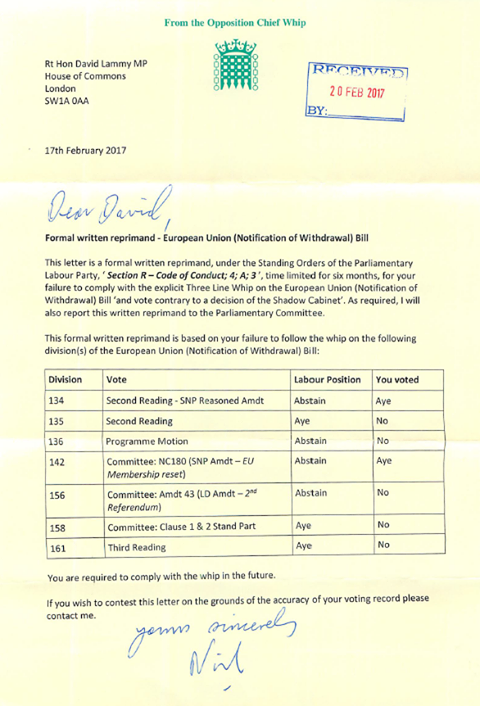The use of "required" here is in the sense of "Do this or else...", not "You have no choice". Wikipedia has a pretty straightforward writeup of what a "Three line whip" means:
In the United Kingdom, there are three categories of whip that are
issued on particular business. An express instruction on how to vote
could constitute a breach of parliamentary privilege, so the party's
wishes are expressed unequivocally but indirectly. These whips are
issued to MPs in the form of a letter outlining the parliamentary
schedule, with a sentence such as "Your attendance is absolutely
essential" next to each debate in which there will be a vote,
underlined one, two or three times according to the severity of the
whip:
- A single-line whip is a guide to what the party's policy would
indicate, and notification of when the vote is expected to take place;
this is non-binding for attendance or voting.
- A two-line whip,
sometimes known as a double-line whip, is an instruction to attend and
vote; partially binding for voting, attendance required unless prior
permission given by the whip.
- A three-line whip is a strict
instruction to attend and vote, breach of which would normally have
serious consequences. Permission not to attend may be given by the
whip, but a serious reason is needed. Breach of a three-line whip can
lead to expulsion from the parliamentary political group in extreme
circumstances and may lead to expulsion from the party. Consequently,
three-line whips are generally only issued on key issues, such as
votes of confidence and supply. The nature of
three-line whips and the potential punishments for revolt vary
dramatically among parties and legislatures.
Effectively, a three line whip is an ultimatum: "Show up and vote the party line, or suffer the consequences." No one is ever required to comply with an ultimatum (in politics or in anything else), but if one doesn't, they can expect to suffer the consequences associated with that choice.
